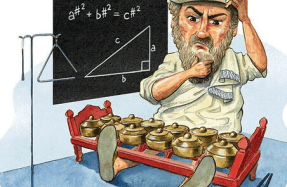Nino Rota

You felt his creativity so near at hand that it gave you a feeling of ‘You inebriation, the sensation that it was you producing the music. It entered so completely into the characters, the atmosphere, the colours of my films as to permeate them with his music.’ This was Federico Fellini’s warmly appreciative verdict on the extraordinary contribution to his feature films made by Nino Rota, who scored no fewer than 16 of them between 1952 and his death in ’79.
It would be naïve not to attribute the impact of Rota’s celebrated Fellini scores in part to the idiosyncratic nature of the films themselves and to the immediacy of the director’s strong personal style. But Rota also composed prolifically and successfully for many other film directors, both in Italy and abroad, including Franco Zeffirelli, Luchino Visconti, Francis Ford Coppola and Sergei Bondarchuk. He was a notable composer of concert music, too, which dominated his output before he devoted his energies increasingly to film work after World War II. Thanks to his formidable compositional training at conservatoires in Milan, Rome and Philadelphia between 1923 and ’32, his mature music in all genres was constantly distinguished
You’re reading a preview, subscribe to read more.
Start your free 30 days



